What is an Earthship?
At the corner of 41st Street and Lancaster Avenue in West Philadelphia, Rashida Ali-Campbell is pioneering the world’s first urban Earthship.
An Earthship is a type of sustainable housing structure first developed in Taos, New Mexico by architect Michael Reynolds. The autonomous, off-grid house takes care of human’s six basic needs for food, energy, clean water, garbage management, sewage treatment and shelter, according to Earthship Biotecture, the company Reynolds founded to design and build Earthships.
How does the Earthship accomplish all of this? First, it incorporates solar gain through large windows and thermal mass through walls made out of used tires filled with rammed earth. This allows the building to regulate temperature without heating or air conditioning because the sun heats the thermal mass in the winter enough to stay warm through the night, but during the summer, the rammed earth remains much cooler than the surrounding air, and buried tubes and ventilation draw additional cool air through the home. The result is that energy demand is reduced and can be easily met with solar panels on the Earthship’s exterior.
In addition to repurposing tires to form rammed earth bricks for the main structural walls, internal walls typically use repurposed glass bottles or aluminum cans. By reusing what is typically seen as garbage, Earthships are not only a potential solution to waste management, but the cost of building materials is also lower than a conventional structure.
An Earthship typically includes cisterns to harvest rainwater or snowmelt off of the roof. In the right environment, someone living in an Earthship can get all their water from the sky, so it will be free of pollution from runoff that is found in many drinking water sources. Additionally, the Earthship reuses the greywater that drains from our sinks and showers by naturally filtering it with indoor plants for other non-potable water needs such as flushing toilets. After it gets flushed, that water goes to a septic tank where overflow feeds additional outdoor plants. Those indoor plants are typically growing food for the Earthship’s residents. When done right, an Earthship can provide organic produce all year round.
The highest concentration of Earthships today is located in and around Taos, New Mexico, where they got their start. But there are Earthships around the world. Most recently, Michael Reynolds and Earthship Biotecture have been helping the people of Puerto Rico rebuild after Hurricane Maria in 2017.
Who is Rashida Ali-Campbell?

Rashida Ali-Campbell is a 42-year-old founder of the nonprofit LoveLovingLove, in addition to being a wife, mother and urban Earthship pioneer. She has lived in Philadelphia since she was a teenager in foster care due to her parents’ struggles with substance abuse. From a young age, she knew she wanted to make a positive impact on people’s lives, and visited the Congressional Black Caucus to speak about homelessness in Philadelphia when she was just 15 years old.
Ali-Campbell’s parents eventually recovered from addiction and became drug and alcohol counselors. Ali-Campbell went on to attend Temple University studying biology with the intention of starting a career in medicine. But she became unsatisfied with the standard practice of medicine and the influence of the pharmaceutical industry and the FDA. She dropped out of school as a junior and that’s when she happened to see the movie “Garbage Warrior” and discovered Earthships.
“That film changed my life in terms of how I felt about what I could do about homelessness here in Philadelphia, and how I could help the people I had been watching struggle for most of my life, and how I could contribute to making those changes happen in a very meaningful way even though I didn’t have much. Because of the nature of the Earthship, it didn’t require you to have much.”
Healthcare and De-escalation

The drive to improve the lives of people who are struggling eventually led her to start LoveLovingLove Inc. in 2007. Around that time, youth violence was increasing in Philadelphia, and Ali-Campbell was determined to find out why and to do something about it. So LoveLovingLove got permission from the Philadelphia school district to create a “De-Escalation Room” with the purpose of addressing the “needs of an individual behaving violently as a result of persistent stress and personal trauma,” according to lovelovinglove.org.
“The child would be removed from the class they were disturbing [and] sent to our room. The room has aromatherapy; it has plants; it has beautiful artwork on the walls; it has music therapy. We had fresh fruits and vegetables and waters, books puzzles and access to certified counselors and breathing exercises. The purpose of the room was to give the young person an opportunity to just breathe to relax and to figure out why they were being so disruptive in class … find out what the issue was, de-escalate the issue, so it didn’t turn into a fight in the classroom, a fight after school, the child being suspended and ultimately missing school and then being on the pathway to prison.”
The room had such an effect on the students, that they would intentionally disrupt class if they wanted to visit the room. Teachers changed their strategy and began to offer to visit the room as a reward. Today many schools in the area have “comfort rooms.”
From working with these students, Ali-Campbell gained an even deeper understanding of what was going on in the community to result in violent behavior by young people. In some cases, abuse was a factor, or the parents were rarely home, or drug use was also a factor. But in many cases, the children simply hadn’t eaten, or the nutritional value of the food was so poor that it affected their behavior.
This should not be too surprising because West Philadelphia is a food desert. Ali-Campbell told Branch Out: “There are no supermarkets – there are small markets – but if you go inside the quality of fruit and vegetables are poor if there are any at all. … You’re lucky to find an apple or an orange in there, and if you do you’re lucky if its any good.”
The more she worked with the students, the more she realized that she had to dream bigger than just a room. Being in a school had its limitations because there were guidelines around interacting with the kids and when the kids could come to the room, and oftentimes, the parents needed access to resources and a space to breathe as much as the kids did.
“We want to offer a safe place for young people to come to de-escalate their violent thoughts ideas and imaginations, come get fresh fruits and vegetables, talk to counselors about trauma or things they’ve been through. … We want it to be a hub where health and care are combined again. Healthcare, we use that term but there’s a lot of people who do not practice the care part. … So we want to bring love back to it and that’s what LoveLovingLove is about. We want to educate people in that community about how to take care of themselves and how to take care of their community, so that they can start growing food again because they do not have access to fresh fruits and vegetables in that community. They can start living a healthy sober lifestyle through working with our partners, and then they can get a hold of access to programming that can help them find direction and purpose in their life, which is what we do with young people to discourage violent behaviors.”
‘A building that lives and breathes’

To scale-up the work of LoveLovingLove, Rashida Ali-Campbell decided that she needed a whole building: “We wanted to have a building to do this in … I saw the Earthship model and decided. Why would we do this work in a conventional building when we can have a building that lives and breathes and takes care of us.”
In 2013 she was on a radio program talking about how she wanted to build an Earthship in Philadelphia. Shortly thereafter, a 4000 sq foot lot at 41st and Lancaster valued at about $9000 was donated. She finally had the space to make her urban Earthship a reality. The main problem was, most people did not know what an Earthship was, and the neighborhood was very skeptical in the beginning.
“No one in Philadelphia had ever heard of an Earthship before, so we had to do three years of education before we could get anybody from the green movement places on board,” said Ali-Campbell. In the mostly low-income community of West Philadelphia, they were nervous at first: “A lot of people would say ‘we are used to people coming and changing our community without our permission and y’all come here and say you’ll do one thing, then do something else.’”
But Ali-Cambell had an advantage in that right when she launched the project, Philadelphia mayor Michael Nutter began to highlight the need for renewable energy and sustainability. Eventually, she got Michael Reynolds and others from Earthship Biotecture to visit Philadelphia and host film screenings, workshops and lectures on Earthships.
The neighborhood and the city came around eventually. Ali-Campbell had to modify the design to have corners instead of the rounded walls that an Earthship would normally have to make it fit in with the typical look for a house in Philadelphia. Just when it seemed like the dream would become a reality, she was stunned when one day while browsing the web she stumbled upon her own lot listen for sale by Urban Proprty Solutions, LLC.
The legal battle that unfolded is documented in more detail in a 2019 article by WHYY. There is a lot of money to be made in real estate as that part of Philadelphia becomes increasingly gentrified. Today, lots in the area with comparable square footage to where Ali-Campbell is building the Earthship are selling for up to half a million dollars. In the end, she won the case in August 2019, and since then, construction has been going forward. When we spoke, she told Branch Out that she can envision Earthships all over her city.
‘I wanna see a reflection of myself in these rooms’

“The building itself is an example of wellness education. It’s our attempt to spread holistic health education wellness and sustainability to all parts of Philadelphia, especially in the urban areas where things like this are not even considered or heard of. For people to be 60 or 70 years old and not know what compost is was very disheartening to me. I go into a lot of these community meetings and it’s mostly older African American people, but when I go to these sustainability meetings and these green meetings, these weatherization meetings and organic food meetings, it’s mostly Europeans. And I don’t see nobody who looks like me in these rooms, and I wanna see a reflection of myself in these rooms so that what we’re talking about in these rooms can be in the community. I don’t like walking down 52nd street and seeing all these recycled material all on the floor. In my mind, that’s a material for a house but people don’t know that. They just throw it on the ground.
So it bothers me now. The education I did over those three years, trying to educate my community, a lot of that stuck with me… So I have a great desire now for people to know what’s in their water, for them to know what’s in their food, for them to know what’s in their medication, and for them to have the freedom to choose whether or not they want to continue to go down that route, or get on a route of healthy, sustainable living. Because most of my clients, they’re on medication, they have diabetes, they have heart disease – a lot of food-related or environment-related illnesses. So I feel like if we can do something about it by making a building, that can help undo many of those problems. Let’s get it!”
With the Urban Earthship, we have a holistic solution not only to the health problems that Rashida Ali-Campbell noticed in her own community, but also a way for people to live a zero-emissions lifestyle to mitigate climate change. With autonomous clean energy, there is no needed to be attached to a fossil fuel burning grid. With in-home food production, the reliance on an industrial food system that uses fossil fuels for fertilizer and food transportation is also greatly diminished. And by being in an urban area, people can come to and from the Earthship using public transportation.
“The paradigm shift is naturally going toward independence,” she said. Especially since the onset of the COVID-19 global pandemic, more people have been reaching out to her to ask about the Earthship and get involved. “If they would have had it during COVID-19 they wouldn’t have had to worry about falling behind on their bills because they wouldn’t have had no bills. The bills are less than 100 dollars a year. And you wouldn’t have had to pay no rent. You own that property.”
Climate Justice

Branch Out spoke to Rashida Ali-Campbell on the phone for about an hour on May 20th, 2020. Five days later, George Floyd was killed in Minneapolis, Minnesota by Derek Chauvin and other members of the Minneapolis Police Department. While we did not discuss police brutality, I asked her if she thinks its fair to say that the environmental movement is dominated by white voices.
“I do think it’s fair to say that when you look at a lot of the environmental groups that they’re mostly white, but I don’t think it’s fair to say that its only environmental groups. When you look at a lot of the groups that are trying to improve the community or improve the nation, they are often comprised of people of higher socioeconomic status, or have more access than others, so I wouldn’t say that it’s only the environmental arenas.
A lot of low-income communities are in survival mode, whereas the communities that have more money and more affluent members they have more time to think about things other than survival. So if you go into a low-income community and they’re trying to figure out how they gonna pay their bills, they’re not really interested in you talking to them about what we should do about a pipeline or about the ice caps melting. They feel like these things are so far removed from their everyday life. …
If you have a person in survival mode, it’s almost impossible to get them in the next level of thinking, so that’s black or white. Environmental groups or any group for that matter who is trying to reach a population, who needs them most, they have to first get them out of survival mode so they can hear them.”
She did not specifically name it this, but Ali-Campbell’s work is the work of climate justice because the Urban Earthship is a solution that addresses social justice and inequality in a way that is also favorable to fighting climate change. Climate justice work requires that the climate activist looks for solutions that both reduce greenhouse gas emissions and help improve the daily lives of marginalized people. The work requires that the social justice activist looks for ways in which improving the lives of marginalized people and addressing systemic inequality can also decrease greenhouse gas emissions and environmental pollution of all types.
In the end, climate justice is necessary because it’s not enough to just save the planet. Activists need to save society from its most sickening prejudices and inequality, and in doing so, restore harmony in the relationship humanity has with itself and the environment. The Urban Earthship has potential as a powerful example of how this can be accomplished.
Rashida Ali Campbell and LoveLovingLove’s “Earthship Philadelphia” will be open in 2021, and will cost about $200,000 for the building plans, materials and construction. The money is being fundraised by Ali-Campbell in collaboration with Earthship Biotecture.
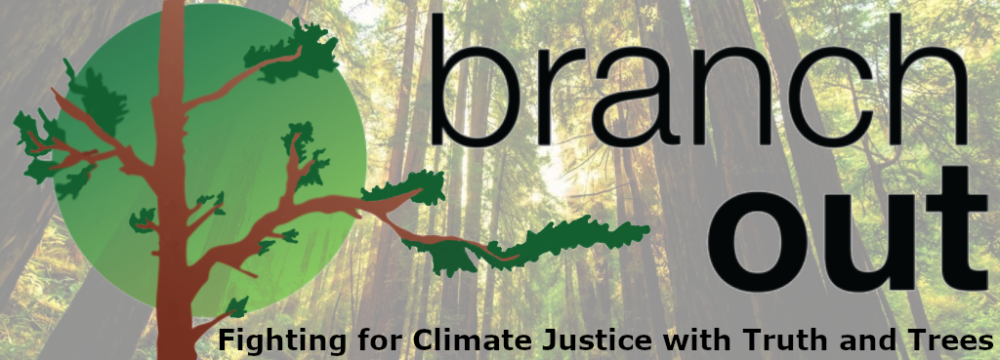
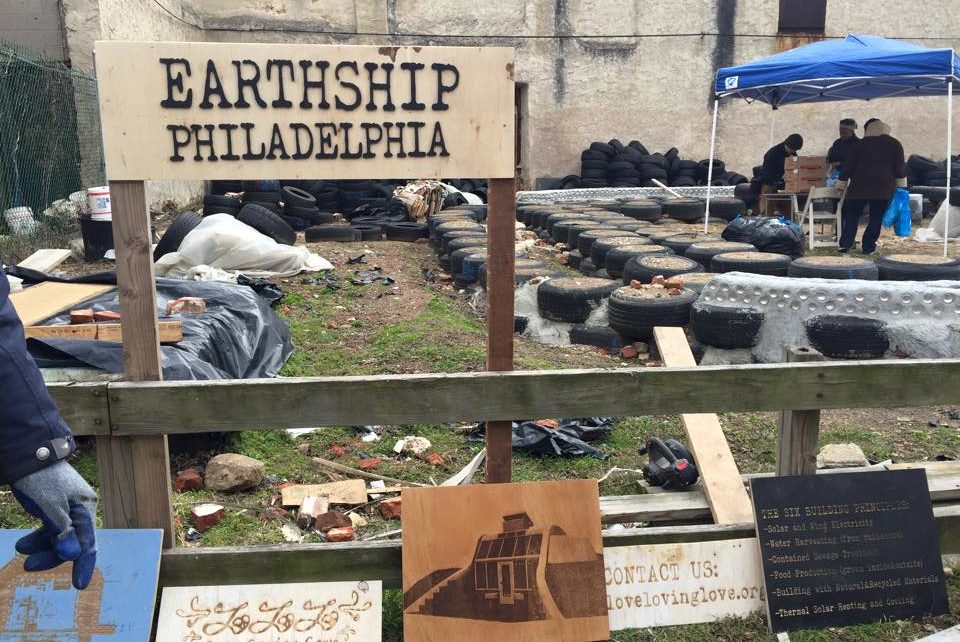
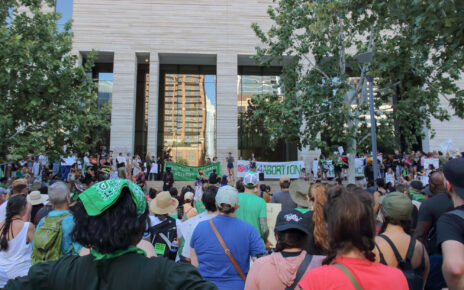
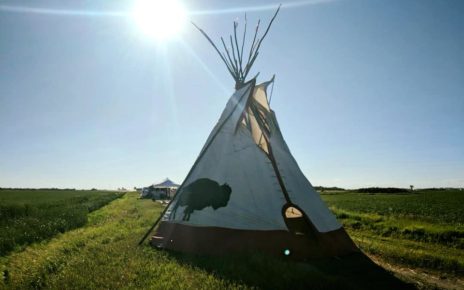
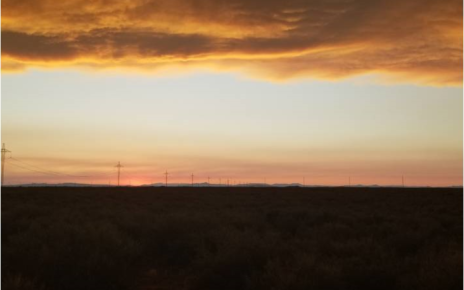
Thank you so much ❤️ This is a beautiful piece
Absolutely Amazing, I love the ideas Rashida expresses as well as her vision to see it through.
Absolutely Amazing, I am in love with the ideas and visions presented in this presentation….. Rashida is going to change many lives with this Earthship.
Earthship Philadelphia – Get Involved. https://earthshipbiotecture.com/philadelphia/
Our mission is to heal impoverished communities with holistic health education and love.